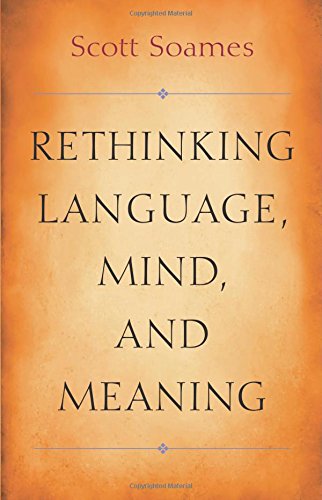

Most ebook files are in PDF format, so you can easily read them using various software such as Foxit Reader or directly on the Google Chrome browser.
Some ebook files are released by publishers in other formats such as .awz, .mobi, .epub, .fb2, etc. You may need to install specific software to read these formats on mobile/PC, such as Calibre.
Please read the tutorial at this link: https://ebookbell.com/faq
We offer FREE conversion to the popular formats you request; however, this may take some time. Therefore, right after payment, please email us, and we will try to provide the service as quickly as possible.
For some exceptional file formats or broken links (if any), please refrain from opening any disputes. Instead, email us first, and we will try to assist within a maximum of 6 hours.
EbookBell Team

4.7
46 reviewsIn this book, Scott Soames argues that the revolution in the study of language and mind that has taken place since the late nineteenth century must be rethought. The central insight in the reigning tradition is that propositions are representational. To know the meaning of a sentence or the content of a belief requires knowing which things it represents as being which ways, and therefore knowing what the world must be like if it is to conform to how the sentence or belief represents it. These are truth conditions of the sentence or belief. But meanings and representational contents are not truth conditions, and there is more to propositions than representational content. In addition to imposing conditions the world must satisfy if it is to be true, a proposition may also impose conditions on minds that entertain it. The study of mind and language cannot advance further without a conception of propositions that allows them to have contents of both of these sorts. Soames provides it.
He does so by arguing that propositions are repeatable, purely representational cognitive acts or operations that represent the world as being a certain way, while requiring minds that perform them to satisfy certain cognitive conditions. Because they have these two types of content—one facing the world and one facing the mind—pairs of propositions can be representationally identical but cognitively distinct. Using this breakthrough, Soames offers new solutions to several of the most perplexing problems in the philosophy of language and mind.